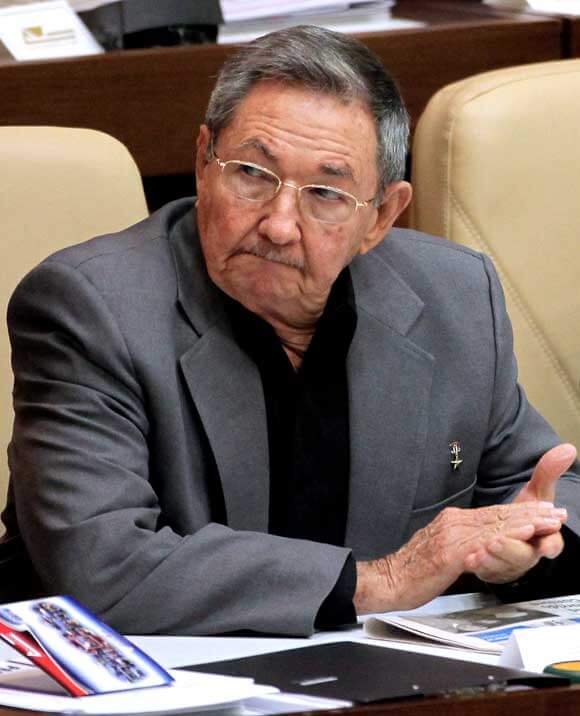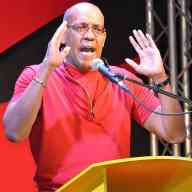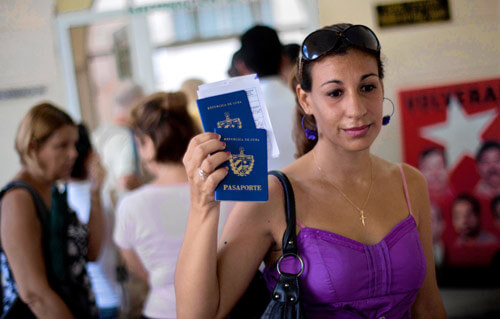The United States has welcomed the release of the last of the 75 peaceful Cuban activists who were “unjustly arrested for exercising their universal rights and fundamental freedoms” during the 2003 “Black Spring” crackdown.
The Roman Catholic Church in Havana, the Cuban capital, said last week that the Raul Castro administration had released the last two political prisoners held since the crackdown on dissents.
The last two men released are Felix Navarro and Jose Daniel Ferrer, dissidents, who had each been sentenced to 25 years in jail.
“The release of political prisoners is a step in the right direction,” said Mark C. Toner, a U.S. State Department spokesman, on March 26.
He, however, said that human rights conditions in Cuba “remain poor,” stating that the Cuban government “continues to limit fundamental freedoms, including freedom of speech, the press, and peaceful assembly.
“We urge the Cuban government to release all remaining political prisoners and allow them to choose whether to remain in Cuba,” he said.
“Those who choose to leave Cuba should be free to return if they so desire. We also urge the government of Cuba to allow access to the U.N. Special Rapporteur and the International Red Cross to its jails so that a fuller accounting of remaining political prisoners can be possible’,” Toner added.
Cuba has been freeing the 2003 dissidents gradually under an agreement reached in July last year between Castro and Havana Cardinal Jaime Ortega.
Amnesty International, the London-based human rights watchdog, has urged the Cuban authorities not to force activists into exile after Navarro and Ferrer were freed on March 23.
Some of the dissidents released have stayed in Cuba, serving the remainder of their sentences outside prison, while others have been forced into exile to Spain.
“It is a step in the right direction for human rights in Cuba to see the release of all prisoners of conscience from the March 2003 crackdown and another detained last December, particularly considering they should have never been imprisoned in the first place,” said Gerardo Ducos, Cuba researcher at Amnesty International.
“What we want to see now is for the Cuban authorities not to force activists into exile as a condition for their release and to ensure all human rights activists are able to carry out their legitimate work without fear of threats, harassment, further arrests or unfair trials in their own country,” he added.
Amnesty International said 75 people were jailed in a massive crackdown against the dissident movement on March 18, 2003 for the “peaceful exercise of their right to freedom of expression.”
It said most of them were charged with crimes including “acts against the independence of the state” because they allegedly received funds and/or materials from U.S.-based non-government organizations (NGOs), financed by the U.S. government.
They were sentenced to between six and 28 years in prison after “speedy and unfair trials for engaging in activities the authorities perceived as subversive and damaging to Cuba,” Amnesty International said.
It said prisoner of conscience Néstor Rodríguez Lobaina was arrested on Dec. 9 last year and has yet to be brought to trial. He is set to be released in the upcoming days on condition of leaving Cuba into exile.
Toner said President Barack Obama, through his policy framework announced in April 2009 and also through recent regulatory changes, has “focused our policy toward Cuba on increased engagement with the Cuban people in an effort to promote democratic ideals and improve human rights conditions on the island.”
“As he said in his recent speech in Chile, ‘Cuban authorities must take some meaningful actions to respect the basic rights of their own people – not because the United States insists upon it, but because the people of Cuba deserve it,’” Toner said.
Bertha Soler, a leader of the “Ladies in White” opposition group and the wife of recently freed prisoner Angel Moya, said opposition activists in Spanish-speaking Caribbean country are “overjoyed” by the releases but vowed to continue waging battle.
“I am very content and nervous at the same time,” she told reporters. “It is very important that we fight, not only for the freedom of the 75, but also for other prisoners.”
The Ladies – wives and mothers of the 2003 prisoners – have been marching peacefully each Sunday in Havana since the arrests.
























